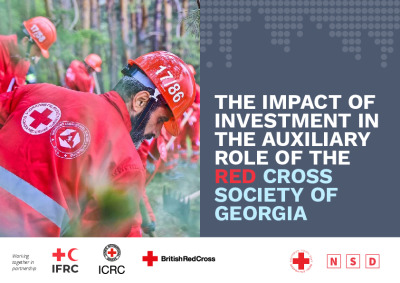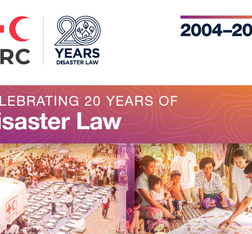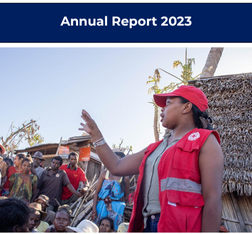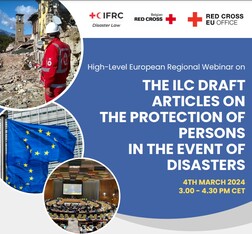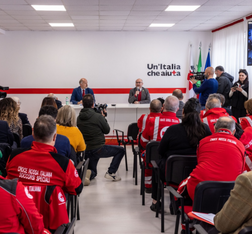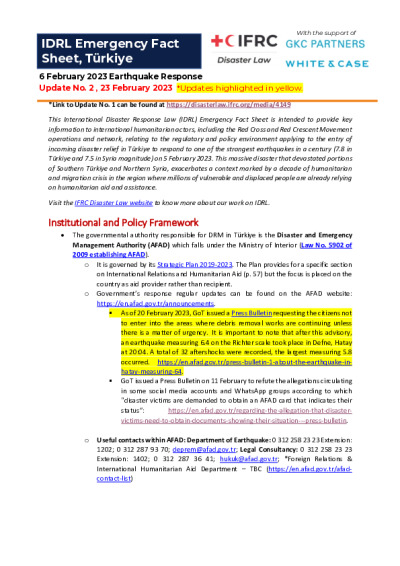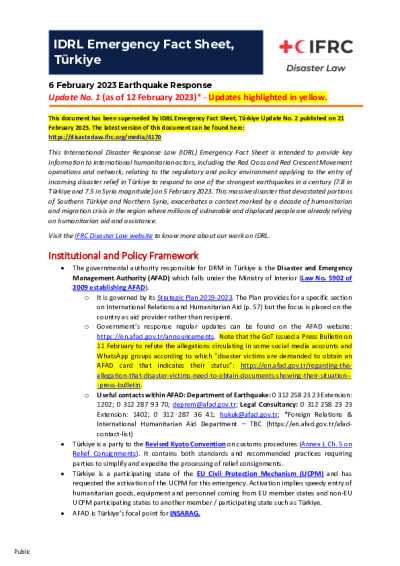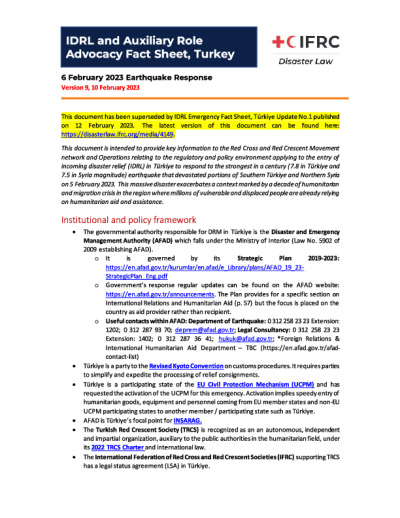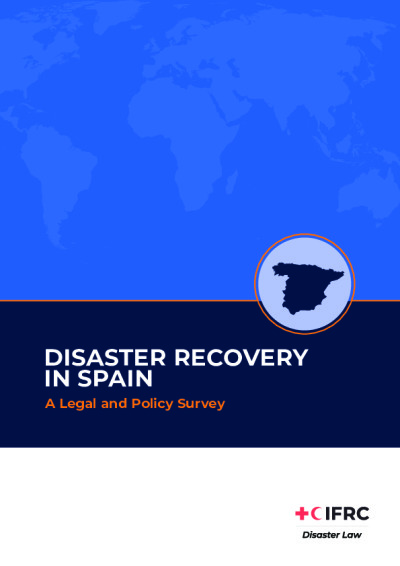In 2010, IFRC Disaster Law published the report, Analysis of Law in the EU and a Selection of Member States pertaining to Cross-Border Disaster Relief: Synthesis Report and Recommendations. The report summarised the results of a comprehensive desk study of the EU-level framework as well as six individual case studies prepared by the National Red Cross Societies of Austria, Bulgaria, France, Germany, the Netherlands, and the United Kingdom.
In 2010 and 2011, there was growing interest in increasing European Union member states’ capacities to receive international disaster assistance, which culminated in the EU Civil Protection Committee approving the EU Host Nation Support Guidelines[TN1] on 18 January 2012 (HNS Guidelines). Both the IDRL Guidelines and the EU Synthesis Report were influential in the development of the HNS Guidelines. The HNS Guidelines are intended to support and assist affected states in receiving international assistance, whether in the preparedness or disaster response phases.
Since 2022, IFRC Disaster Law and the RCEU Office – on the basis of inputs received by European National Societies – have been involved in the updating of the IFRC Civil Protection Guidance for National Societies and Federation Secretariat relations with European Union actors (2023), to be released soon. The document, a substantive update of a previous version published in 2013, aims to lay down practical guidance on principled and constructive engagement with the European Union Civil Protection Mechanism, and national civil protection stakeholders. The Guidance is relevant to Red Cross and Red Crescent entities in the light of the changes brought about by the implementation of the Treaty of Lisbon (2009), and the subsequent relevant European legislation. Specifically, the present document incorporates amendments from the years 2019–2021 pertaining to Decision No 1313/2013/EU of the European Parliament and the Council, and regulating the Mechanism’s development. Its purposes are to: facilitate a comprehensive understanding of the current functioning of the Mechanism; illustrate how National Societies (NS) and the International Federation of Red Cross and Red Crescent Societies (IFRC) Secretariat can effectively position themselves and potentially contribute to it; and support their capacities to navigate its evolution in the future.
IFRC Disaster Law and the RCEU Office are also actively engaged in supporting the diplomatic process related to the ILC Draft Articles on the Protection of Persons in the Event of Disasters, and specifically to advocate for stronger positioning by the EU, European States and European National Societies. For this purpose, a High-Level Regional Webinar aiming to involve governmental representatives (including from legal offices in the Ministries of Foreign Affairs and Legal Advisers at the EU and UN in New York) of European countries, EU Civil Protection Mechanism participating countries, as well as governance and legal experts of European National Red Cross and Red Crescent Societies, was organised in March 2024, to share information and sensitize participants about the high relevance of adopting a new global framework of reference in this sector, aiming at improving the protection of people affected by disasters. The event was supported by the Belgium Presidency of the EU Council and the Belgian Red Cross
While the European Union has an advanced disaster management framework, substantial legislative preparedness is still required at the national level. Domestic disaster laws and policies provide the legal and institutional basis for all aspects of disaster risk management — from risk reduction and climate change adaptation to preparedness for response and recovery — and contribute to strengthening the resilience and protection of at-risk and disaster-affected populations. In 2023, IFRC Disaster Law consolidated its 20 years of research and recommendations into a single, comprehensive document: the Disaster Risk Governance Guidelines. The Guidelines adopt a holistic approach, identifying how different types of instruments — laws, regulations, policies, plans and Standard Operating Procedures (SOPs) — can collectively provide a strong framework for effective DRM. They address all key topics that need to be addressed in domestic disaster instruments, from reducing risk through strong building codes to declaring a state of emergency to being ready for recovery.
IFRC Disaster Law welcomes interest from National Societies, and other prospective partners, who would like to implement disaster law dissemination, training, and advocacy activities or projects in Europe.
